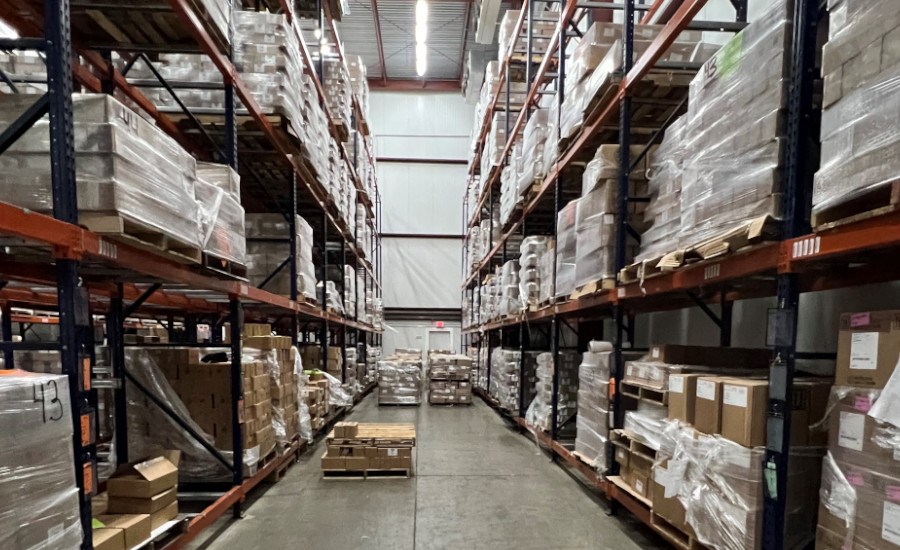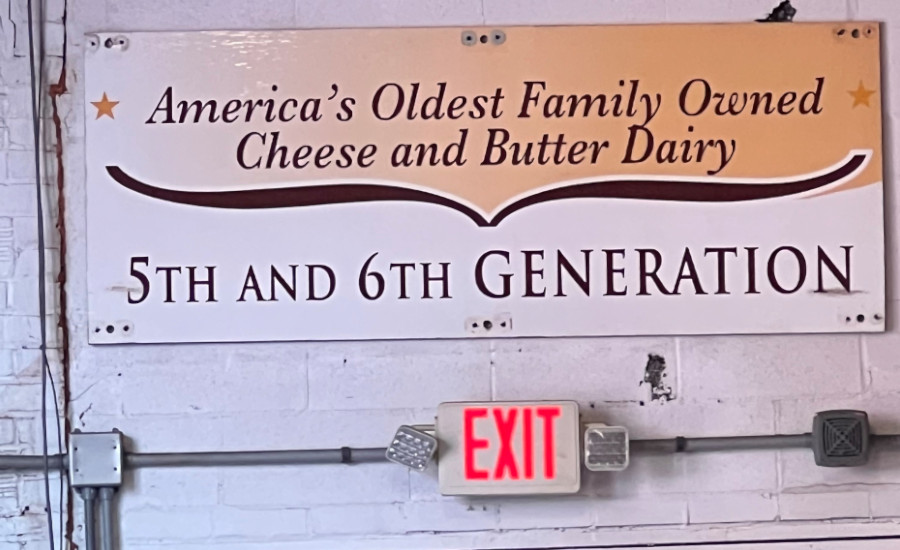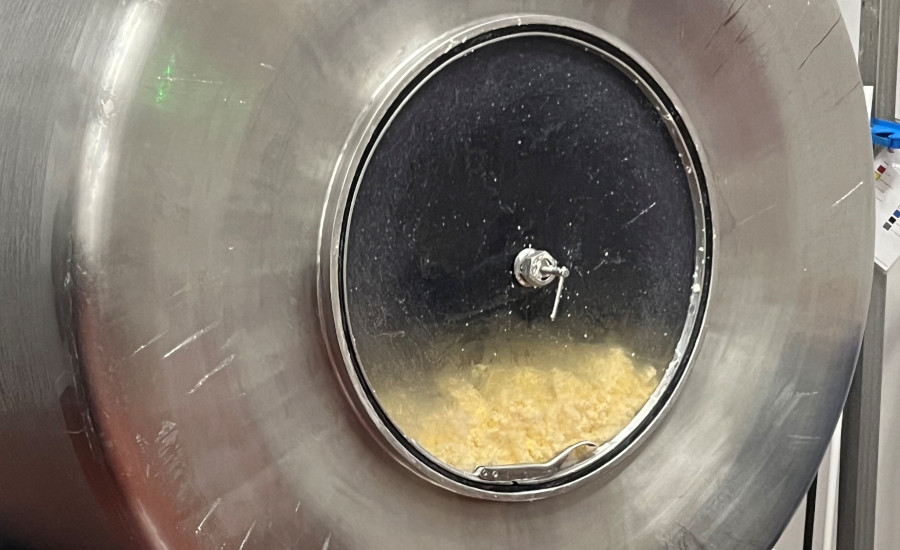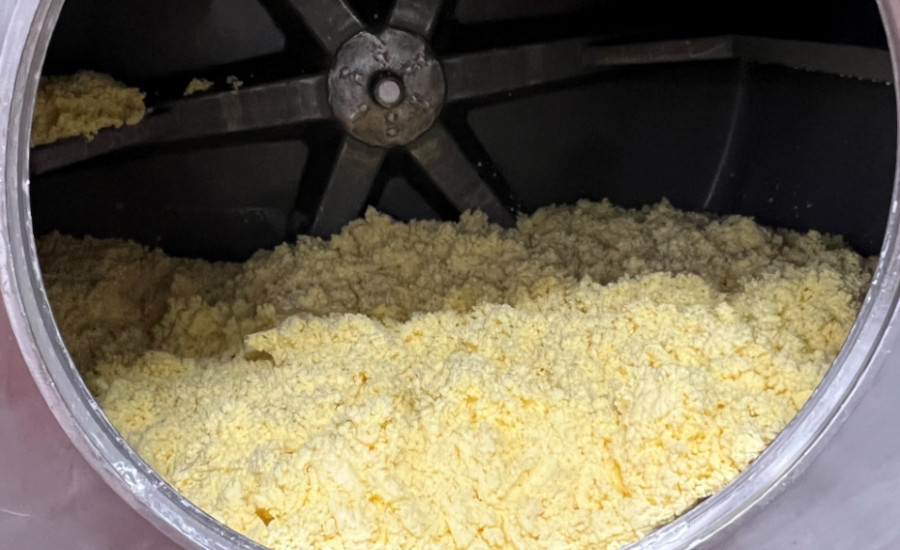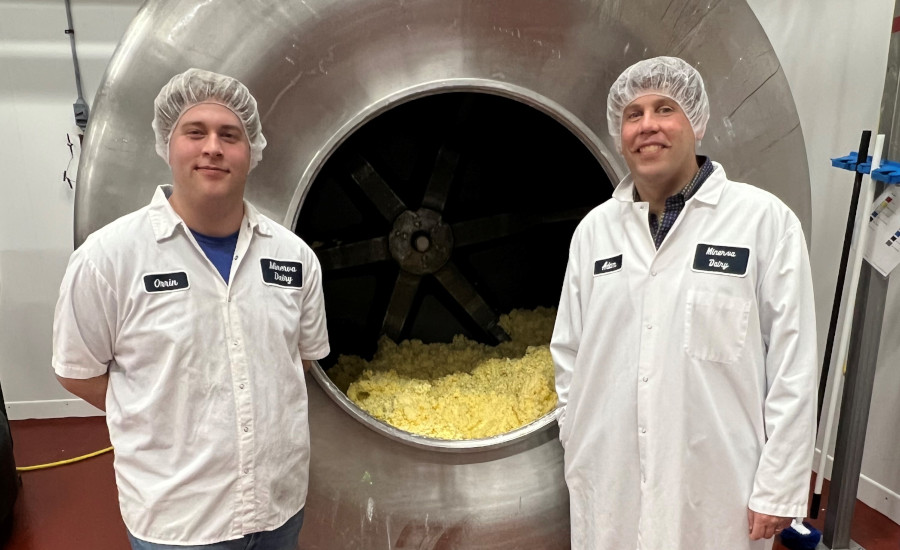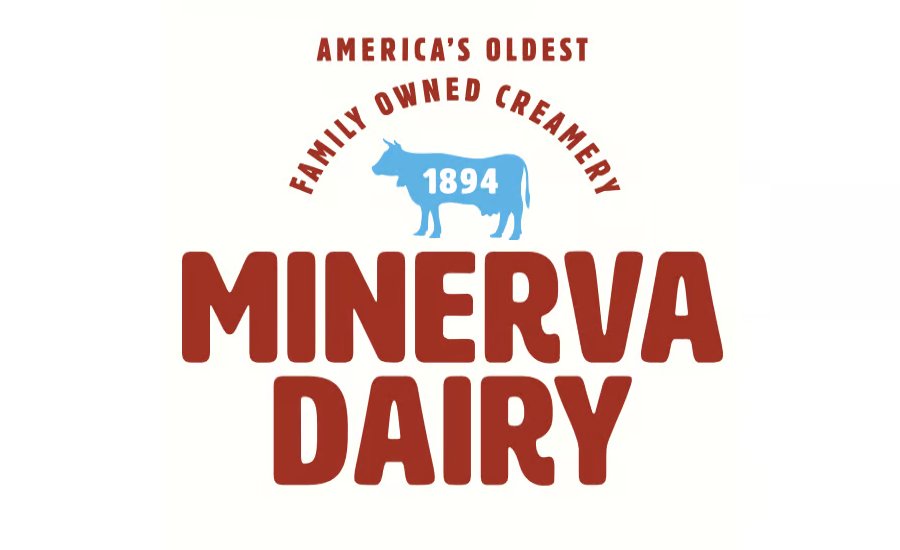Anyone thinking butter is just another dairy product should look no further than South Korean boy band BTS, which just two years ago released a song simply titled “Butter,” which includes the lyrics, “Smooth like butter, pull you in like no other.”
Dairy Foods received an up-close look at Minerva Dairy’s butter and cheese processing operations upon its visit to its Minerva, Ohio plant.
Running the operations in Minerva’s plant is Adam Mueller, CEO of the Minerva, Ohio, company. The plant was built in 1917, with Minerva Dairy moving in to the facility in 1935. “Apparently, at the time, nobody was taller than six feet. Every doorway was built to be exactly six feet high,” Mueller tells Dairy Foods. “We have made adjustments since.”
Minerva is well known for its butter, distributed nationally. What is lesser known is the fact that the dairy company also operates a significant cheese processing business on a co-packing basis for other manufacturers.
Much of its 80,000-square-foot plant has not changed, with the exception of a cooler room, which houses 500 pallet locations. The cooler room, opened in 2012, holds all of Minerva Dairy’s retail butter products, as well as its 40-pound blocks of cheeses.
Much of Minerva Dairy’s equipment has been upgraded, however, including a state-of-the-art electronic light detector, an overwapper and robotic palletizing.
For its cheese processing, Minerva uses Tetra Pak vats, which were installed in November 2020. The previous vats were in place for 35 years. “The new vats have done wonders for us, in terms of yield and consistency,” Mueller notes.
Minerva Dairy installed four vats, each of which can hold 38,000 pounds of milk, but left the proper space to add a fifth vat in the future. “We will probably not add the vat in the next 15 or 20 years. But someday, the next generation will make a decision to replace our current vats and possibly add a fifth,” Mueller relays. “Hopefully, I made a decision the next generation is going to thank me for.”
On the day of our visit, Minerva Dairy was processing Romano cheese. “Romano and asiago are two of my favorite cheeses, because they have so much flavor profile,” Mueller states.
A Human-Machine Interface (HMI) system can access every piece of equipment throughout Minerva Dairy’s plant. “Although some of us still know how to use switches and buttons, we are highly automated and have been so since 2010,” Mueller reveals.
All of the cheeses and butters Minerva processes are sold immediately. “But we make hard, Italian cheese that needs to be aged for 8 to 10 months,” says Mueller. “Our customers do that aging. After aging, they do conversions, shreds, dicing and grating. The cheese eventually gets to the retail store. It could be there as an ingredient or as grated parmesan in green shakers.”
Better butter
After our visit to the cheese segment of the plant, Dairy Foods visited the butter processing rooms. At the time of our visit, Minerva Dairy was spinning cream, which takes about 30 to 40 minutes to break into curds and whey. Ultimately, it was manufacturing 4-ounce butter sticks at the time of our visit.
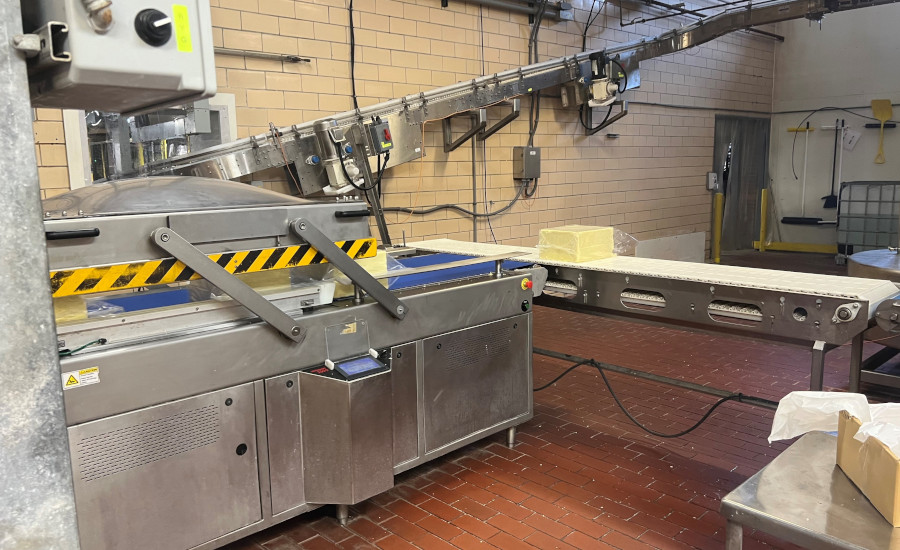
Minerva Dairy’s butter is made with 85% butterfat, nothing artificial, hormone-free, with milk that comes from American farms. Its packaging carry its slogan: “6 Generations of Butter Makers.”
Butter churning was another stop on the plant tour. Minerva Dairy makes butter in smaller batches and churns it slowly, resulting in a thicker, creamier and richer butter, which maintains flavor and texture, resulting in a high-quality product. This is versus some high-volume factories where speed pumps can trap air in the butter, causes texture and flavor loss, Muller states.
“That is what is unique about us. Larger manufacturers do large, continuous churns. That is why we make butter with 85% fat, as opposed to commodity butter, which is 80% fat,” Mueller says.
“The aroma that emanates from freshly churned butter curds is one of my favorite parts of the day. Although I do not get to make as much butter anymore, [my son] Orrin gets to make it,” Mueller says.
Minerva-branded butters include Sea Salt, Unsalted, Garlic Herb and seasonal flavors, including Smoked Butter. Minerva Dairy also has a recipe book of different flavors that can be used for co-packing or private label.
Minerva utilizes an Ivarson Continuous Butter Churn (ICBC). The ICBC provides continuous butter churn for a capacity of 2 tons per hour. The churn is integrated with a dry salt applicator to feed organic sea salt crystals into the butter.
“Ivarson has helped us expand our butter production. We purchase churns from them and the equipment that produces our 4-ounce sticks. Our 8-ounce cartons Salted, Unsalted and Garlic Herb boxes have two 4-ounce sticks in each,” said Venae Watts, co-owner of Minerva Dairy, who also serves as vice president of sales and also works with public relations, marketing and new product development.
For unsalted butter, Minerva Dairy drops the pH and lactic acid naturally occurs. When manufacturing salted butter, the Ohio-based processor uses sea salt. “This is the same way we have made butter for more than 100 years,” Mueller maintains. “There is no difference with the mechanical and drums, except that they are stainless steel today, which was a transition from wood that took place in the ’50s. But the process has always stayed the same.”
Minerva Dairy purchases milk from some 80 dairy farms in Ohio. About 10 to 12 trucks unload shipments on a daily basis to the company’s milk receiving room. Upon receiving the shipment, Minerva Dairy tests for antibiotics, protein, somatic cells, pH and more.
Talking about the next generation
Minerva Dairy, America’s oldest family-owned creamery, was founded in 1894. Mueller serves as the fifth-generation CEO, along with his sister Watts. Mueller has six children, while Watts has seven. All 13 have grown up working in the business.
“Many learned throughout high school what it is like working in the business. When they get to college, they come back in the summer to work here,” Mueller said. “My oldest child is 26 and my youngest is 7.”
Mueller notes it is impossible to know who among his children could be the future sixth-generation CEO, but he is thankful that between Watts and himself, one of their children should be the right candidate.
“We are coming up on 130 years next year, and I am really excited that our legacy will live on. It has been quite a journey,” Mueller asserts. “What it comes down to is making long-term decisions, based on what we think things will look like 20 to 30 years from now. We are always about long-term thinking. We are never about short-term profits. That sets up the next generation well.”
Mueller constantly thinks about the next generation and how important succession planning is. “Often with dairy farmers and manufacturers like us, there is a transition of wealth from one generation to the next. Unfortunately, there are times the older generation wants to cash out or retire, and straddle the younger generation with debt,” Mueller stresses.
When a younger generation is stuck with debt — including difficult tax transitions — multi-generational businesses can fail, he adds.
How does Minerva Dairy avoid that pitfall? “We literally work forever,” Mueller relays, as evidenced by his father Phil Mueller, who is still heavily involved in the business. “You realize that when you sign up to be part of this business. It is a lifelong journey. There is no point in time when you can just cash out. That is the way dairy farms operated in the 1700s, 1800s and early 1900s.”
Orrin Mueller, 19, a member of the sixth generation as a butter maker, is fascinated by the company’s storied history, which even included ice cream processing, led by Orrin’s great-grandfather, Delbert Mueller, until 1987. “There are always exciting and interesting things to talk about within our organization,” Orrin Mueller states.
Orin is planning to attend college to study animal food science. “I am interested in working at the business as of now,” he maintains. “But who knows what will happen in college?”
This is exactly the way Orrin’s grandfather Phil Mueller felt at the time as well. “He went to college with no intention of ever being involved in the dairy industry. He went to school for two years and decided to come back to the business,” Adam Mueller notes. “His main task today is to talk to the farmers. He gets to see the farmers every opportunity he can. That is his favorite thing to do.”
Adam Mueller and Watts realize not all of their children will join the family business. But Adam Mueller notes they can serve the company in other ways, including one of his daughters, who is especially interested in the marketing of the Minerva Dairy brand.
Although the exact places the sixth-generation “chips will fall,” is unknown, Adam Mueller know this: when he was his father’s age, he hopes to get to do what he loves most: churning butter in the morning.
“I am looking forward to contribute, no matter what capacity that may be in,” he concludes.

